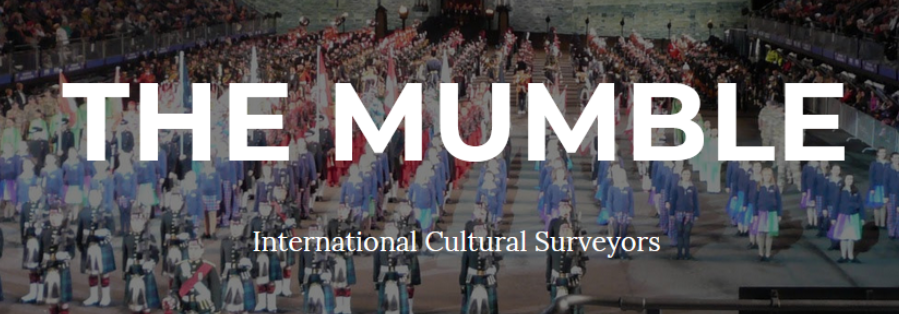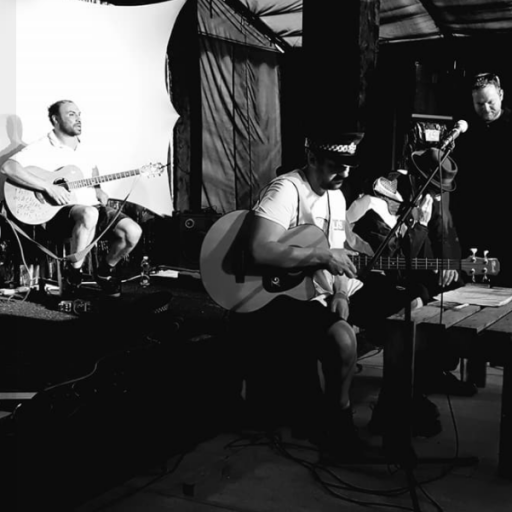An Interview With Hanna Komar

This week, Actors for Human Rights are bringing ‘The People Woke Up’ to Edinburgh – the Mumble had a chat with its creator
• Hello Hanna, where are you from & where do you live these days?
Hello. I’m from Belarus and I’m currently based in London. I came here to take an MA in Creative Writing on a Chevening Scholarship in September 2021. The idea was to go back home after the year, to bring all the new knowledge, ideas and experience back to my home country. But it’s not safe to return now. So I’m staying to undertake a PhD at the University of Brighton.
• As a poet, would you say there are specific themes or styles that are the key ingredients to Belarusian poetry & which other Belarusian poets do you like?
I think Belarusians are a poetic nation in general. We open up to poetry quite naturally when we encounter it, and we have a lot of great poets, including contemporary ones. Belarusian poetry is diverse, as it should be, I believe. Recently, women’s voices have become especially powerful and distinct. I can make a long list of names that I consider prominent, but sadly, by far not many of them one can find in English translations, and this is the main reason why only so few Belarusian poets are known to the English-speaking audience. Among them, of course, Valzhyna Mort is the most renowned. Julia Cimafiejeva is another important voice, and her English collection “Motherfield” is to be out soon in the USA. Kryscina Banduryna, a strong, uncompromised voice sounding from Belarus, despite all the risks which speaking out poses. These are obviously just a few, but they all have something in common: they write from a feminist perspective on the life in Belarus, reflective of its past and present filled with different forms of violence.
• How do you approach writing poetry yourself?
My approach to writing poetry now is different from what it used to be before the summer 2020. My poetry used to be personal, even intimate, even though it of course reflected the context, the time and place I was living in. Since 2020, I’ve mostly spoken about collective experience. As the repressions at home have been getting worse and worse, I’ve lost my own voice and my own words. I’ve been mostly documenting the collective experience, and I’m grateful for the existence of docu poetry – because it means that I’m not keeping silent, that I still have tools to give voice to those who need it. But actually, I’ve also started writing creative non-fiction, as it gives me more space to tell stories of Belarusians.
• How much involvement do you have with PEN Belarus?
I worked at PEN Belarus, now I’m a member. Of course, I follow their activities, they do very important work not only for the present but for the future. I’m also an honorary member of English PEN. Being part of the community helps to not feel alone and powerless when far away from home.

• Could you tell us about ‘The People Woke Up, what is the piece all about and what is your involvement with it?
It is a verbatim, which means that you hear the stories of real people told in their own words. Four Belarusians who have been affected by the post-election protests of 2020 in Belarus tell their stories – from the moment they got involved in the protest till present, and we can see them in development, how their lives and their personalities have changed, evolved I’d even say. These voices represent hundreds of thousands other stories.
• Can you tell us about the creative processes involved in making the show?
On my end, when I learnt that Christine Bacon, artistic director of ice&fire was collecting stories, I felt appreciative that in 2022, amidst all the horrible things going on in so many places in the world, and amidst the Russian invasion in Ukraine, someone didn’t simply remember about our fighting, but wanted to amplify our voices. I was interviewed for the script and then Christine invited me to actually read my own story out in Edinburgh. I feel both excited about it, because it’s a new interesting thing for me to do. I’ve performed my poetry loads, but never taken part in a script reading. At the same time, these are all painful memories, and going back to them time after time is not easy. Also, my experience feels almost innocent compared to the others, but I remind myself that if people want to hear it, then it’s meaningful.
• Who else will be performing the piece, and what has it been like sharing your experiences?
The other performers are also from Belarus, and they are also not living there. I haven’t met any of them in person yet, but I look forward to sharing this emotionally charged space of our collective experience.
• Have you performed in Scotland before and what do you like about the country?
I haven’t performed in Scotland before, although I have a little dream of performing my poetry in the Lighthouse bookshop in Edinburgh. And I would like to get to know Scotland better. I had a short tourist visit a few years ago, and I was excited when I heard a group of people in a pub in the village North Berwick speaking Scottish. I even asked to have a photo with them) I think we are somehow similar in the spirit. But also countries which have history of being colonised share some experience. That’s why artistic, academic and this sort of collaborations are so important between us.
• What hopes do you have for some kind the future of Belarus and your freedom of speech there?
I have hopes for a Belarus free from dictatorship and free from the omnipresence of the Russian colonialism in our lives. I know that when freedom of speech is possible in Belarus, it won’t make it a democratic country automatically, and I know there will be not only respectful debates but a lot of fighting over all kinds of things. But I also know that it is vital for humans to be able to speak. To think. To feel. And not be punished for it. A lot of problems can be resolved then, with the help of art in particular. Wounds can be healed.
• Please would you send us two examples of your poetry that you would be happy for us to publish?
These two poems I wrote in August 2020.
We couldn’t find you
that night on autodial
tones like batons
like rubber bullets
directed at you
130,131 . . . long tone
a morning face on concrete
kicked from unconsciousness
three days without food
there’s no answer
to all our
white flowers
and red hearts
human body and memory
withstand injuries
incompatible
with our belief in the better
we rename the colours
fear, anxiety, mourning
loving, resistance and hope
when it’s over
i will help you paint
these bare walls
white
red
white
Minsk, August 2020
Women’s solidarity chains
there are no flowers
nor tears along the road
only the beeping
from the passing cars
i want to be my body again
neither red nor white or black
not the hands holding reproach
but bare feet walking on grass
i put on a thimble
and pet your hair
i do this to my fingers
imagine my heart
a living woman
neither a battle flag
nor a bud of hope
I want to hear my voice
I want my body back
i must never have
wanted it
so badly
ice&fire present
The People Woke Up
September 28th: Scottish Parliament (17:00)
September 29th: Scottish Storytelling Centre (19.30)
Posted on September 26, 2022, in 2022. Bookmark the permalink. Leave a comment.



Leave a comment
Comments 0